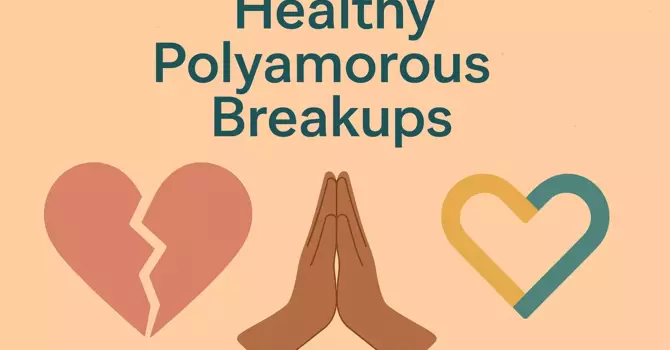
Polyamory is founded upon honesty, communication, and consent. You can be new to ethical non-monogamy or a seasoned veteran to discover health and safety physical and emotional within your relationships important. While common representations lead to a focus on the potential risks, the reality is that polyamorous relationships can be as fulfilling and safe as monogamous ones, provided that one be responsible and reflective in one's method. Below we explore a number of the most significant aspects of health and safety in polyamory, including emotional well-being, safer sex, and effective communication.
Emotional Well-Being in Polyamory
Working with numerous relationships requires high emotional intelligence, self-awareness, and good communication of needs and boundaries. Some essential aspects of emotional health in polyamorous relationships include:
Jealousy Management – Jealousy is a natural emotion that may occur in any relationship. The key is to manage it constructively. Instead of viewing jealousy as failure, it is an opportunity for introspection. What deficiency is not being met? Is it a fear of abandonment? A reassurance need? To communicate these feelings openly with partners is to open the gates to mutual nurturing and growth.
Emotional Support Systems – Since polyamory goes against society's norms, external judgment may be a cause of stress. Having a support system—a therapist, a local poly group, or close friends—can help navigate the emotional landscape of more than one relationship.
Time Management and Burnout Prevention – Polyamorous relationships require sound time management. Managing multiple partners, work, and free time can be overwhelming if not well managed. Establishing clear expectations and frequent check-ins with all partners can prevent burnout and resentment.
Physical Health and Safe Sex
Sexual health is part of any relationship, and with polyamorous arrangements, it requires additional levels of awareness and responsibility.
Regular STI Testing and Honest Communication – Open communication about sexual health is non-negotiable. Regular STI testing should be a shared value among partners, and discussing sexual health status should be normalized and not stigmatized. Some polycules even establish testing schedules to encourage openness.
Barrier Methods and Protection – Reducing risks by using condoms, dental dams, and other safety methods makes closeness safe as well as fun. Boundary setting and sexual practice with new loves must be mutual.
Knowledge of Risk Reduction Strategies – Education in risk reduction practices, including the use of PrEP for reducing HIV risk and vaccines for immunization against HPV and Hepatitis B, is beneficial for ensuring general safety among polyamorists.
Communication as the Pillar of Safety
The foundation of a healthy polyamorous relationship is open, constant, and honest communication. Honesty fosters trust, and lack of honesty causes misunderstanding and insecurity.
Setting Relationship Agreements – Each polycule is unique. Some people are hierarchical in relationships, and some believe in relationship anarchy. Making agreements about time, intimacy, and emotional investment makes everyone feel safe and special.
Active Listening Practice – Listening without interruption or defensiveness creates a safe environment in which both partners are respected and heard. Active listening practice promotes healthier conflict management and greater intimacy.
Regular Check-Ins – Relationship check-ins allow for time to discuss problems, celebrate successes, and revisit agreements as needed. Whether in a weekly sit-down or more organically, these conversations keep relationships alive.
Safety and well-being in polyamory are more than about sexual health; they encompass emotional well-being, honesty, and intentional relationship maintenance. Through trust-building, emphasis on wellness, and openness, polyamorous relationships can be satisfying and safe for all involved. As is the case with any relating style, polyamory is optimal when practiced carefully, respectfully, and intelligently.
https://inclusivetherapygroup.com/blog/health-and-safety-within-poly-relationships





